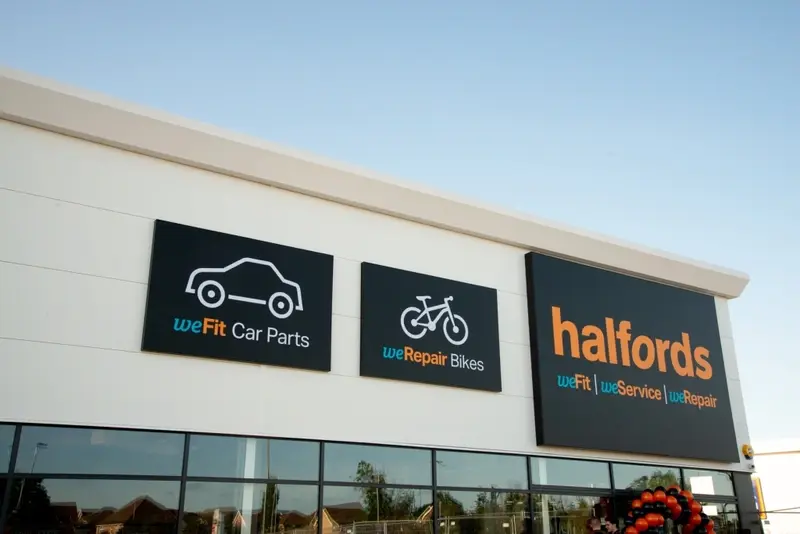
- Retailer sticks with £65 million to £75 million profit guidance
- Autocentres business taking market share
- Cycling sales fall as cost of living crisis bites
Shares in Halfords (HFD) rallied 14.5% to 152.8p after the lately unloved car parts-to bicycles retailer reported resilient trading over the 20 weeks to 19 August 2022 and maintained its full year profit guidance.
Investors were pleased by the news all of Halfords’ divisional sales were comfortably ahead of pre-Covid levels in the period, with the autocentres arm driving performance, while cycling sales held up better than feared in the face of a worsening consumer spending squeeze.
REASSURINGLY ON TRACK
Halfords said it is on track to deliver full year pre-tax profits in the £65 million to £75 million range, implying a 22% decline at the mid-point in line with June’s downgraded guidance, after total sales ticked up 9.2% in the 20 weeks to 19 August.
Autocentres delivered one year total growth of 67.8% following a spate of recent acquisitions and like-for-like growth of 19.4% amid further market share gains and continued growth in demand for electric vehicle servicing.
One year like-for-like cycling sales were down 12.7% due to a tough prior year comparator and with consumers reducing discretionary spend, though the cycling category has proved more resilient than expected and three year like-for-likes were up 9.5%.
EXHIBITING RESILIENCE
Halfords’ trading statement also noted good progress on cost saving and inflation mitigation targets and good product availability across the group, with stock levels in line with expectations.
‘Over 70% of our sales now come from motoring products and services,’ said CEO Graham Stapleton, ‘and the fact that this area of spend tends to be more needs-based rather than discretionary is leading to a very resilient group performance, despite the wider macroeconomic uncertainty.’
Stapleton also warned the cost-of-living crisis presents a threat to road safety as cash-strapped motorists keep cars running for longer.
‘Based on what we’re seeing in our garages and taking into account continuing issues with the supply of new cars, we believe the average age of cars will pass the nine year mark very soon and could even creep above ten years before the cost-of-living crisis eases,’ explained Stapleton.
‘Vehicle reliability has improved in recent years but there is no getting away from the fact that older cars are more likely to develop faults, are more costly to maintain, and are more polluting. This represents a risk to road safety, yet another squeeze on motorists’ wallets, and a threat to the UK’s emissions reduction goals.’
EXPERT VIEWS
Liberum Capital said Halfords’ material de-rating since July 2021 ‘may seem harsh given the progress with the service-led strategy, the growing mix of defensive and higher margin revenues and strong balance sheet, which will support further M&A in garages and an attractive dividend yield.’
The broker is sticking with its hold rating ‘with earnings momentum on a negative trajectory year-on-year’ and ‘until greater forecast confidence returns’.
AJ Bell investment director Russ Mould commented: ‘The motoring and cycling retailer is notably sticking with its annual forecast as it looks to balance the need to mitigate the impact of rising input costs while still offering its customers decent value.
‘People need their cars for everyday life so spending in this area is likely to be more resilient than on more discretionary items and the strength of Halfords’ motoring services business reflects this situation.’
Mould added: ‘Sales of cycling products, appropriately enough, tend to be more cyclical and this area of the business is looking like more of a clapped-out old racer than a shiny new carbon-fibre road bike.
‘For the time being buying a new bike is unlikely to be a priority for cash-strapped households, but Halfords can afford to lean on the motoring business and wait for the next upswing in demand.’
DISCLAIMER: Financial services company AJ Bell referenced in this article owns Shares magazine. The author of this article (James Crux) owns shares in AJ Bell.





